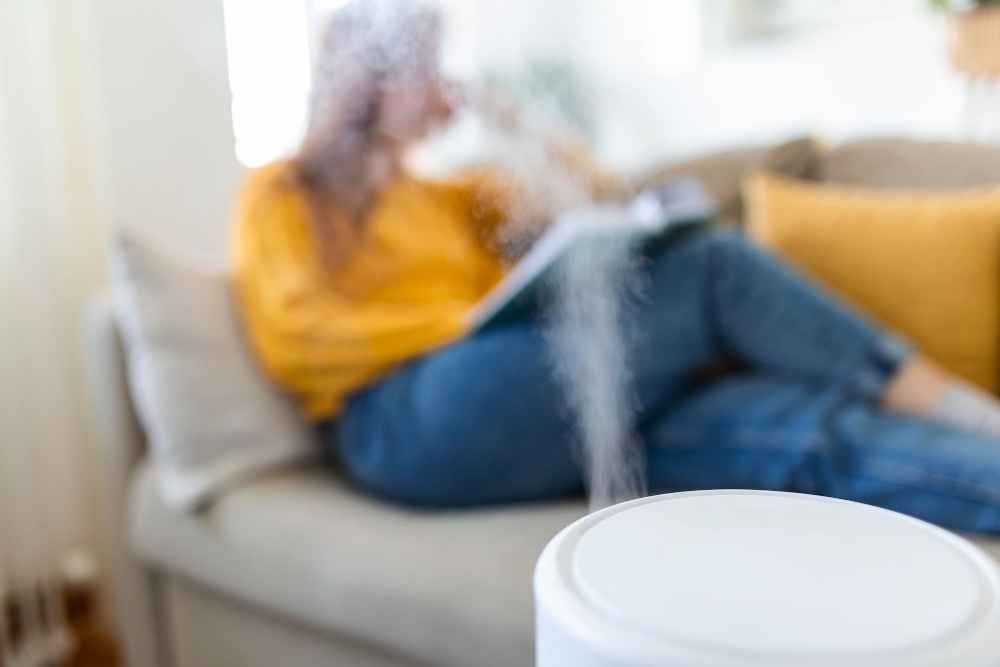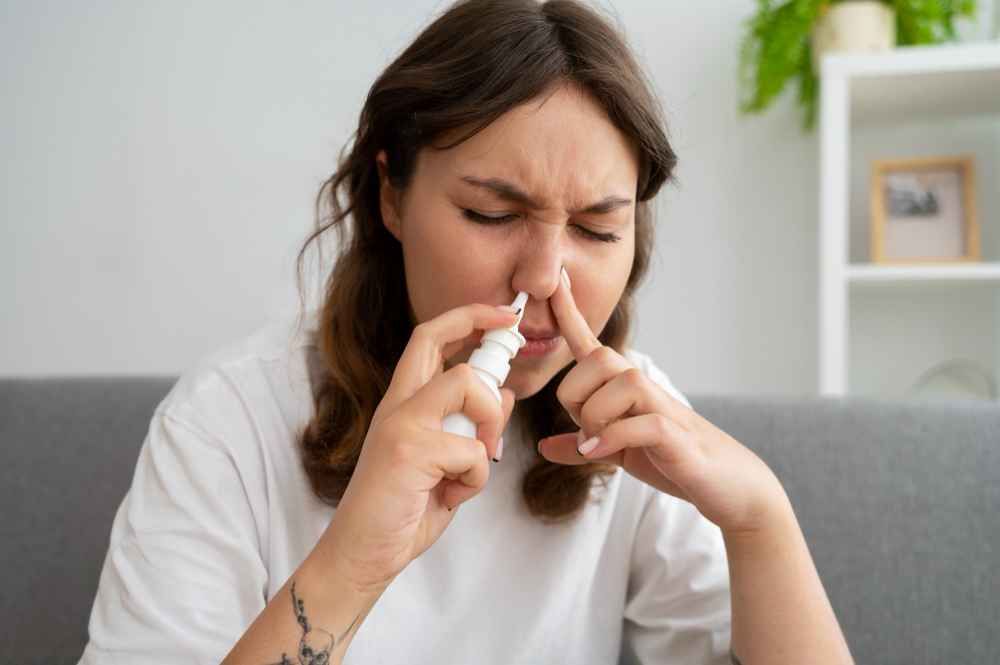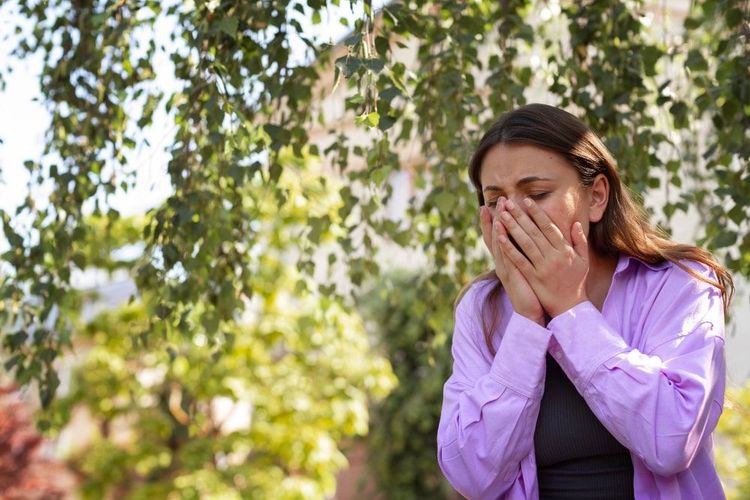Is spring coming, and you're worried that you'll suffer from seasonal allergies like every time? Do you want to enjoy the beautiful weather without sneezing and itching this time? A lot of people suffer from allergies during this time of the year, and it can be quite bothersome.
But with proper precautions and prevention methods, you can significantly reduce your symptoms and enjoy the spring season to the fullest this time.
Why It's Important to Prevent Seasonal Allergies
It is essential to take measures to prevent seasonal allergies, as they can greatly impact your quality of life. Allergy symptoms such as sneezing, coughing, congestion, and itchy eyes can make it challenging to go about your daily activities.
Also, uncontrolled allergies can lead to chronic conditions such as asthma and sinus infections. Here are 7 effective ways to prevent seasonal allergies in spring:
Tips for Preventing Seasonal Allergies in Spring
Know Your Allergies
Before you can effectively prevent allergies, it's important to know what exactly you are allergic to. Consult with an allergist or get an allergy test done to determine the specific triggers that cause your allergy symptoms. This will help you take targeted preventive measures and avoid unnecessary treatments or medications.
Keep Track of Pollen Counts
Pollen is one of the main triggers of seasonal allergies. Keeping track of the daily pollen counts in your area can help you plan your outdoor activities accordingly. On days with high pollen counts, try to stay indoors and limit your exposure to allergens.
Are you aware of the pollen count in your area? You can find daily pollen counts on weather websites or through various allergy apps. Some weather websites, such as Weather Underground, provide detailed pollen forecasts for specific regions. You can also sign up for email or text alerts to receive updates on high pollen counts in your area.
You may also like: Natural Remedies for Sunburn Skin: A Complete Guide
Manage Your Home Living Environment

Making small changes to your home environment can greatly improve your allergy symptoms. Here are some tips for organizing your home's living environment:
- Keep windows and doors closed: This prevents pollen from entering your home and causing allergy symptoms.
- Use an air purifier: An air purifier can help filter out allergens in the air, such as pollen and dust mites.
- Clean regularly: Dust and vacuum your home frequently to reduce the amount of allergens in your living space.
- Use hypoallergenic bedding: Switching to hypoallergenic bedding can help reduce exposure to dust mites and other allergens while you sleep.
- Remove carpets: Consider removing carpets in the spring season to prevent pollen and other allergens from getting trapped in them.
- Keep pets clean: Bathe your pets regularly to remove any allergens that may be on their fur.
Shower Before Bedtime

A simple and effective tip to minimize allergies is to take a bath before bed. During the day, pollen and other allergens can accumulate on our clothes, skin, and hair. By showering before bedtime, you can wash away any potential allergens and prevent them from spreading onto your bedding.
I remember learning this tip from my grandmother, who had severe seasonal allergies. She would always take a shower before bed in the spring and summer months, and it helped alleviate her symptoms significantly.
This practice not only helps with preventing allergies but also enhances the quality of our sleep overall. Taking a warm shower before bed relaxes our muscles and promotes better blood circulation.
It can also help us de-stress and clear our minds before going to sleep, leading to a more restful night's sleep.
Use a Humidifier

Dry air can irritate your nose, throat, and eyes, making seasonal allergies worse. Many people find relief by using a humidifier in their bedroom or living spaces.
Humidifiers add moisture to the air, making it easier to breathe and reducing allergy symptoms. They can also help soothe dry skin and prevent sinus congestion.
When choosing a humidifier, make sure to select one that is appropriate for the size of your room and easy to clean to avoid mold growth. It's also important to regularly change the water and clean the filter to maintain good air quality.
Try Herbal Remedies

Natural remedies have been used for centuries as a way to alleviate allergies. Some popular herbs known for their anti-inflammatory and decongestant properties include peppermint, ginger, and eucalyptus.
These herbs can be consumed as tea or inhaled as essential oils. Using a humidifier with these oils can also help to clear congestion and reduce allergy symptoms. You can also try incorporating these herbs into your diet by adding them to dishes or taking herbal supplements.
Wear Protective Gear

Another way to reduce allergy symptoms is by wearing protective gear when going outdoors. This can include a face mask, sunglasses, and a hat to cover your hair and face from exposure to allergens. This is especially important if you live in an area with high pollen counts or during certain seasons when allergens are more prominent.
I always keep a pack of tissues and an extra face mask in my bag when I know I'll be spending time outside. Not only does this help with my allergies but it also protects me from other pollutants in the air.
So, even if you don't have allergies, it's still always a good idea to take precautions when going outside. A pro tip is to avoid touching your face while outdoors, as it can transfer allergens from your hands to your skin.
Use Saline Nasal Sprays

The final helpful tip for preventing seasonal allergies is to use a saline nasal spray. These sprays are made from a mixture of salt and water, which help to remove allergens or irritants from your nasal passages. They also help to keep your nasal passages moist and prevent them from becoming swollen.
Saline nasal sprays are safe to use daily and can provide quick relief for allergy symptoms. They are also safe for children, making them a great option for children with seasonal allergies. Be sure to choose a spray that is specifically labeled for allergies, rather than a generic saline spray.
Final Thoughts
As you can see, there are numerous ways to prevent and manage seasonal allergies in the spring. If you incorporate these tips into your daily routine, you can greatly reduce allergy symptoms and enjoy the beautiful spring weather without constant discomfort.
Consult with a doctor if your symptoms become severe or if you are unsure about which medications are right for you. With proper care and prevention, you can conquer seasonal allergies and enjoy the joys of spring.
Read More: How to Stay Cool During Heatwaves




